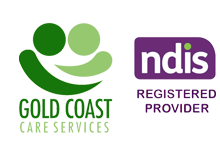We talk a lot about disability these days. It is one of the biggest challenges of our time – how do
we go about making disabilities more accepted and help create an equal society for disabled
people? However, in the midst of all these discussions, it is important that we do not forget one
thing – how we talk about disabled people and the language we use. After all, the way in which
we have these conversations will influence how successful they will be. It’s something we feel
passionately about – the right kind of talk to change the world.
Discourse plays a key role in the way we do things, of course. It serves to help us learn what the
best method of communication is, how we want to interact with people, and how we can best
move forward in discussions – how we modify our language and approach to achieving equality
for people. These are all important considerations, and they all play a role in the way we do
things and what we do, indeed, look for in our conversations about equality and progress.
We have to approach conversations about disabilities and opportunities in a real, grounded way.
It doesn’t help anyone if we try to romanticize disability and give it some tragic quality – these
are real people who are probably tired of having to fight for their right to be treated properly.
They live messy, complicated lives like everyone else, so there’s no time for conversation which
isn’t going to help. We have to take a proper, unflinching look at disabilities and the way they
interact with the world, and find real solutions to problems. If there isn’t a public transport link in
place for people with disabilities, why not? If disabled people are facing discrimination in jobs,
we need to change the rules.
However, none of this is meant to be a substitute for good manners and respect. The viewpoints
and ideas put forward by disabled people need to take priority during discussions. Naturally,
people need to feel supported and helped wherever possible, and disabled people will have
ideas and opinions based on their experiences – experiences that most of us can’t understand
or navigate as an abled person. Our forums and discourse on the matter need to be
overwhelmingly filled with disabled people from all walks of life to ensure their ideas and needs
are properly expressed.
Discourse about disability can be hard sometimes. It is often difficult for people to take a raw
and unfiltered look at the prejudices and failings of modern society. However, it is also
necessary for change and growth. If we don’t strive to make a more inclusive and accepting
society, then we can not possibly hope to achieve the growth necessary to help people with
disabilities feel represented and helped. We need to help disabled folks grow and succeed, but
we won’t get there without some difficult conversations and harsh truths. The way we approach
these situations will make a big difference.
